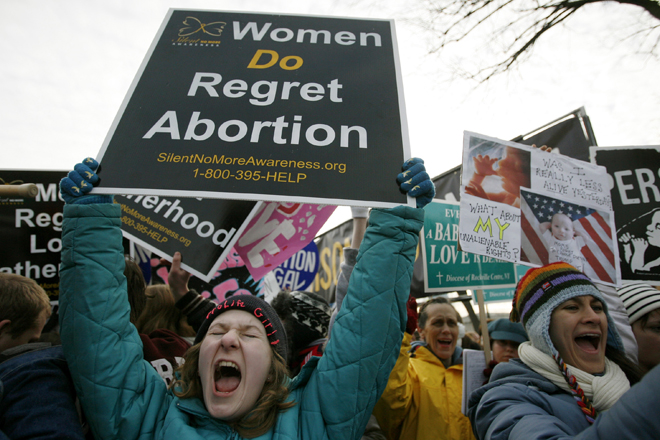Reproductive rights advocates are preparing to challenge two of the nation’s most restrictive abortion bans.
In March, the Arkansas Legislature overrode a veto by Democratic Gov. Mike Beebe to pass a law criminalizing abortion after 12 weeks. Later that month in North Dakota, with the support of Republican Gov. Jack Dalrymple, lawmakers passed a “fetal heartbeat” law that banned the procedure at five to six weeks. Abortion rights and reproductive health advocates contend both laws violate a woman’s constitutionally protected right to an abortion as set out by Roe v. Wade, which defines fetal viability between 22 and 24 weeks.
“I think they’re going to be blocked immediately by the courts — they are so far outside the clear bounds of what the Supreme Court has said for 40 years,” Nancy Northup, president of the Center for Reproductive Rights, told USA Today.
Lawyers from the center and the American Civil Liberties Union will lead the court challenges, and expect victories that would require both states to pay their attorneys’ fees.
Despite offers from the Liberty Counsel and other Christian litigation groups to defend the North Dakota and Arkansas bans pro-bono, Andrew Beck at the ACLU says both states could still be liable for substantial fees if the laws are struck down. As Beck told Salon:
States like North Dakota that pass unconstitutional abortion bans are wasting taxpayer dollars, even if organizations offer to defend the state free of charge. Under federal law, when someone sues a state to strike down an unconstitutional law, the state pays not only to defend the law, but it also has to pay the legal fees of the person who sued to block the unconstitutional law. So unless Liberty Counsel plans to pay the legal bills of North Dakotans who sue to strike down the abortion ban, unconstitutional abortion restrictions are not only a terrible interference with a woman’s private medical decisions – they are a huge waste of taxpayer dollars.
The North Dakota six-week ban is scheduled to take effect in August. In Arkansas, the law banning abortion at 12 weeks would take effect 90 days after the end of the legislative session.

